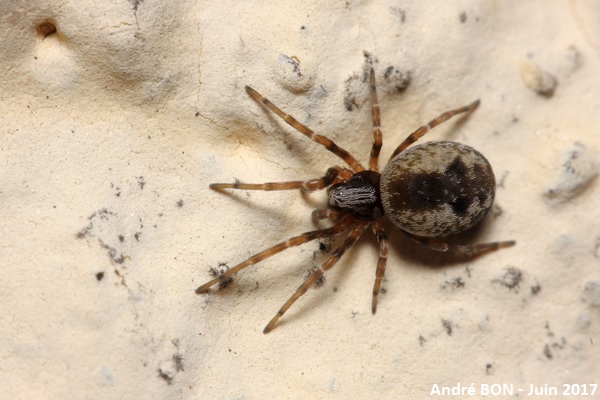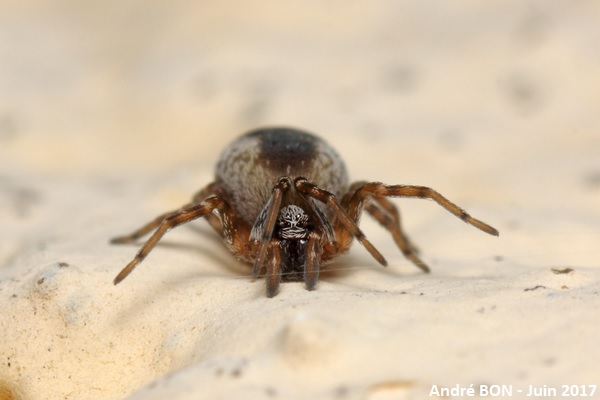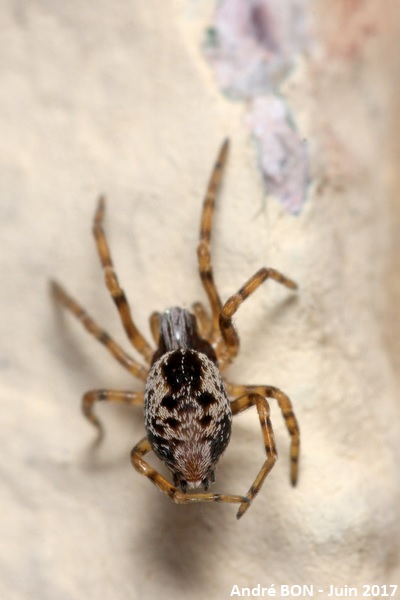


| Civic Meshweaver (Brigittea civica (Lucas, 1850)) |



|
|
Scientific name: Brigittea civica (Lucas, 1850) Common name: Civic Meshweaver Other names: Old scientific name: Dictyna civica. French name: Order: Araneae Family: Dictynidae Size: 2.3 to 3.5 mm. Biotope: On the walls of buildings, both outdoors and indoors. Original habitat on rocks. Web: Irregular web, in the crevices of the walls, forming a kind of net. The Civic Meshweaver is a cribellate spider, meaning that its web is made of gummy silk that holds prey. The web hides the retreat of the spider, it is often cluttered with the remains of preys and dust. Observation period: April to June. Geographic area: Europe, North Africa, Turkey. Introduced to the United-States and to South Africa. |
The Civic Meshweaver is a very small dark brown spider. The cephalothorax is marked with alignments of white hairs. The abdomen also has white hairs at the base and sides, showing a median dark marking extending to the tip of the abdomen with three spike-like enlargements. The legs are reddish with white rings. The femurs are darker. Among similar species Dictyna arundinacea and Dictyna uncinata show a dark mark separated in two on the abdomen. Brigittea latens is more grey in colour, the dark mark is enlarged towards the base of the abdomen. Habitat is very important for identification. These three other species can be observed on the vegetation, that is not the case for Brigittea civica. |
| [To know more about the Civic Meshweaver] [Next picture] [Top] |

|
I read that these small spiders can be observed in large colonies. This is not the case here where I only saw a few isolated specimens. |
| [To know more about the Civic Meshweaver] [Next picture] [Previous picture] [Top] |

|
Front view. |
| [To know more about the Civic Meshweaver] [Previous picture] [Top] |

|
Enlargements of the dark band on the back of the abdomen may take the form of separate lateral spots. |